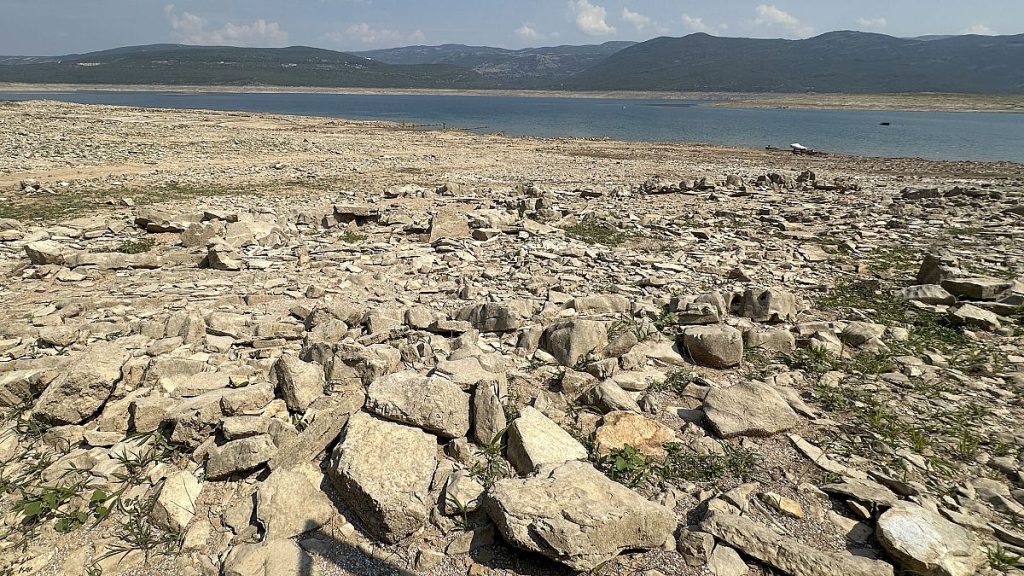Europe is experiencing the hottest summer on record, leading to record drought and critically low water levels in lakes and rivers across the continent. In countries like Poland and Bosnia, the lack of rain and soaring temperatures have resulted in severe water shortages. Climate scientists are attributing this extreme weather to climate change, warning that periods of extreme weather will become more frequent and intense in the future. In Bosnia, the summer of 2024 was the hottest in over 130 years, with temperatures consistently above 30 C (86 F) and little to no rain for months. This has had devastating effects on the energy and tourism industries in the region.
One of the most impacted areas in Bosnia is the hydroelectric industry, which relies on water to generate electricity. Dried up lakes like Bileca and Jablanica have caused water levels to plunge well below average, threatening the supply of electricity from hydroelectric plants. The Trebisnjica Hydroelectric System company, which manages four power plants that use water from Bileca Lake, has seen water levels drop by 7 meters below normal levels. The receding waters have made it difficult for locals to access the lake, impacting tourism and recreational activities in the area. As Bosnia grapples with the economic and social impacts of the extreme weather conditions, there are calls for the country to take immediate action to mitigate the effects of climate change and prepare for future challenges.
In Poland, the situation is equally dire, with the Vistula river in Warsaw reaching record low water levels. Hydrologists had been warning for days that the river would hit historic lows, and these predictions were confirmed on Monday when the water gauge showed only 24 centimeters. This is the lowest result ever recorded, breaking a record set nine years ago. The prolonged lack of rainfall and extreme temperatures have caused rivers across Poland to rapidly dry up, with 71% of hydrological stations reporting low water levels and 295 stations indicating hydrological drought. The impact of the water shortages is widespread, affecting agriculture, wildlife, and the overall ecosystem of the region.
The record drought and low water levels in Europe are highlighting the urgent need for countries to address climate change and its impacts. As temperatures continue to rise and extreme weather events become more frequent, communities will need to adapt to new conditions and prepare for future challenges. Climate scientists warn that the negative effects of climate change are not limited to specific regions but will impact the entire planet. Countries like Bosnia and Poland must learn from the experiences of others and implement solutions to mitigate the effects of climate change. This includes investing in sustainable practices, improving water management systems, and taking proactive measures to reduce greenhouse gas emissions and combat global warming.
As the hottest summer on record comes to an end, the effects of extreme weather on lakes and rivers across Europe are becoming increasingly apparent. From dried-up lakes in Bosnia to record low water levels in Poland, the water shortages caused by the scorching temperatures are posing significant challenges for communities and industries that rely on these natural resources. As climate change continues to impact the planet, countries must work together to find innovative solutions to adapt to the changing climate and protect vital water sources. By taking immediate action and embracing sustainable practices, nations can mitigate the effects of climate change and build a more resilient future for all.













